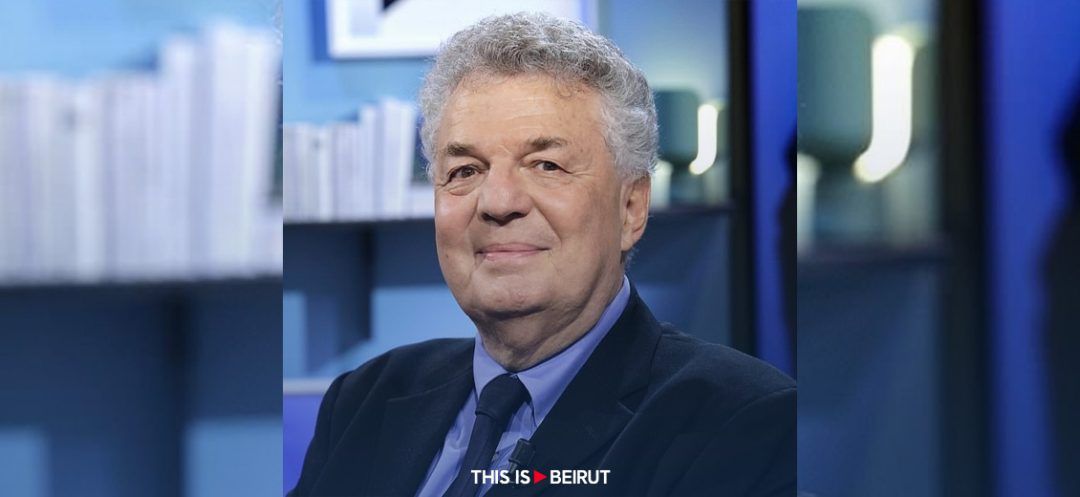
French linguist Bernard Cerquiglini explores the deep intermingling of French and English in his humorous new book The English Language Doesn’t Exist: It's Badly Pronounced French. Beneath this provocative title, Cerquiglini pays homage to the way English has absorbed French and other languages over the centuries.
The story begins with the Norman conquest of England in 1066, after which Norman French became the language of the new ruling class. Over the next 150 years, many French words that today might seem native entered English, like cabbage, lure and wage.
But the 13th and 14th centuries saw the most prolific borrowing, as French became widely used as a second language in trade, administration and law in England. Mastering French could determine one’s fortune, freedom and life, so the language bled freely into English. Half of English’s French loanwords entered from 1260 to 1400, giving us words like bachelor (from French bachelier meaning a young noble), travel (related to French travail meaning labor), and clock (from French cloche meaning bell). By Shakespeare’s time in the late 16th century, a staggering 40% of the 15,000 words in his works were of French origin.
In modern times, the French can be defensive about English loanwords entering their language. The Académie Française, guardians of linguistic purity since 1635, have railed against English terms related to COVID-19 like cluster and testing as well as tech words like big data. They’ve had some successes, such as getting the Francophone world to use logiciel instead of software. But Cerquiglini argues that this isn’t an invasion, just “French words that have gone for training in England and are coming back to us.”
He notes that French alternatives can sometimes go too far, as in Quebec where hot dog is awkwardly translated as chien chaud (literally hot dog). “That doesn’t whet my appetite,” Cerquiglini quips. “I have no desire to buy a chien chaud, that’s for sure.”
Cerquiglini sees the rich history of French-English exchange as a model for the Francophonie, the global community of French-speaking nations. Just as French functioned as an influential second language in medieval England, it plays a similar role today in places like Madagascar and Louisiana. These situations could prove as linguistically fertile as French’s centuries-long sojourn in Britain.
However, Cerquiglini worries that English itself is under threat from the rise of Globish, a simplified global lingua franca sniffily derided by the French. “This is an impoverished English, he warns. We have to save the English language, Charles III has to act!”
The linguist’s greatest hope lies in the recent rapid advances in automatic translation. While he spent decades mocking the terrible results of crude machine translation, Cerquiglini now finds the state-of-the-art “stupefying.” High-quality automatic translation could enable seamless communication while preserving local languages in all their richness.
In the end, Cerquiglini’s book is a love letter to the glorious mess that is the English language — A badly pronounced French that absorbed words from around the world and has been molded into something uniquely expressive. Beneath his deliberately arrogant Gallic posturing, Cerquiglini clearly revels in “the linguistic tangle since the Norman Conquest” and invites readers to delight in it with him. He shows that English and French are not jealous rivals, but old friends and companions, their histories and vocabularies are intimately intertwined in ways that left them both incalculably richer.
With AFP
The story begins with the Norman conquest of England in 1066, after which Norman French became the language of the new ruling class. Over the next 150 years, many French words that today might seem native entered English, like cabbage, lure and wage.
But the 13th and 14th centuries saw the most prolific borrowing, as French became widely used as a second language in trade, administration and law in England. Mastering French could determine one’s fortune, freedom and life, so the language bled freely into English. Half of English’s French loanwords entered from 1260 to 1400, giving us words like bachelor (from French bachelier meaning a young noble), travel (related to French travail meaning labor), and clock (from French cloche meaning bell). By Shakespeare’s time in the late 16th century, a staggering 40% of the 15,000 words in his works were of French origin.
In modern times, the French can be defensive about English loanwords entering their language. The Académie Française, guardians of linguistic purity since 1635, have railed against English terms related to COVID-19 like cluster and testing as well as tech words like big data. They’ve had some successes, such as getting the Francophone world to use logiciel instead of software. But Cerquiglini argues that this isn’t an invasion, just “French words that have gone for training in England and are coming back to us.”
He notes that French alternatives can sometimes go too far, as in Quebec where hot dog is awkwardly translated as chien chaud (literally hot dog). “That doesn’t whet my appetite,” Cerquiglini quips. “I have no desire to buy a chien chaud, that’s for sure.”
Cerquiglini sees the rich history of French-English exchange as a model for the Francophonie, the global community of French-speaking nations. Just as French functioned as an influential second language in medieval England, it plays a similar role today in places like Madagascar and Louisiana. These situations could prove as linguistically fertile as French’s centuries-long sojourn in Britain.
However, Cerquiglini worries that English itself is under threat from the rise of Globish, a simplified global lingua franca sniffily derided by the French. “This is an impoverished English, he warns. We have to save the English language, Charles III has to act!”
The linguist’s greatest hope lies in the recent rapid advances in automatic translation. While he spent decades mocking the terrible results of crude machine translation, Cerquiglini now finds the state-of-the-art “stupefying.” High-quality automatic translation could enable seamless communication while preserving local languages in all their richness.
In the end, Cerquiglini’s book is a love letter to the glorious mess that is the English language — A badly pronounced French that absorbed words from around the world and has been molded into something uniquely expressive. Beneath his deliberately arrogant Gallic posturing, Cerquiglini clearly revels in “the linguistic tangle since the Norman Conquest” and invites readers to delight in it with him. He shows that English and French are not jealous rivals, but old friends and companions, their histories and vocabularies are intimately intertwined in ways that left them both incalculably richer.
With AFP
Read more



Comments